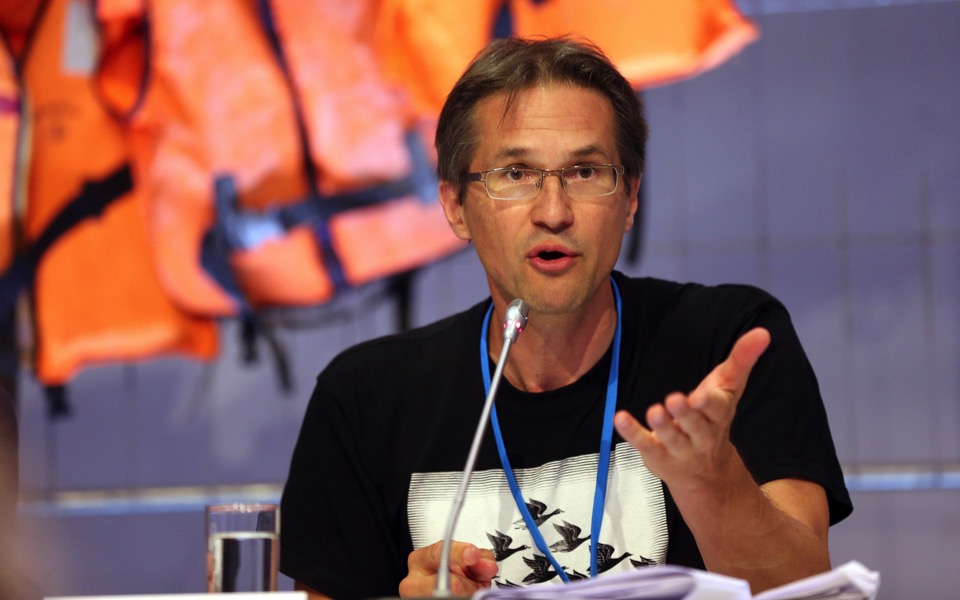EU-Turkey refugee pact looks increasingly like a Jenga tower, ESI chief says

A deal between the European Union and Turkey to stem the flow of migrants looks increasingly like a Jenga tower, says the man who came up with the plan, while placing most of the blame for its failure on European leaders. Speaking during a recent round-table discussion in Athens, Gerald Knaus, the Austrian chairman of the European Stability Initiative (ESI), a Berlin-based think tank, warned that “if nothing is done in the next days, weeks, months, the tower will fall.”
During the event, which was organized by the Hellenic Foundation for European and Foreign Policy (ELIAMEP), Knaus said the success of the refugee pact and the decongestion of migrant facilities on Greece’s Aegean islands depends on two conditions: first, ensuring returns from the islands to Turkey and, secondly, ensuring relocations from Turkey to the EU.
“Making sure that Turkey is a safe third country should be the first thing European officials think in the morning and the last before they go to sleep,” said Knaus, adding that European leaders “lack seriousness.”
The ESI chairman said that Turkey should be able to provide decent accommodation, a sufficient number of interpreters and a well-equipped asylum service so as to make sure that non-Syrian refugees have access to a credible asylum procedure. This would allow Greece’s asylum services to send back Pakistanis, Iraqis and Afghans, the largest numbers now on the islands. But instead of pressuring Ankara in that direction, the Europeans are insisting that Turkey make progress in unrelated areas, such as amending its anti-terror legislation.
Knaus’s original proposal foresaw the transfer of 500,000 Syrian refugees to a number of EU states. “We had underestimated the administrative difficulties,” Knaus said. “The UNHCR said that up to 50,000 people could be relocated from Turkey per year,” he said.
However, according to European Commission data, only 1,583 individuals had been relocated from Turkey by September 9. What does the number say about the Europeans’ intentions? After shutting down the Balkan route and decreasing the number of arrivals on their territories, critics say, the issue has been back-burnered.
“At the height of the crisis, there were plans being drawn up at ministries in Germany, the Netherlands and elsewhere about how to go about resettling tens of thousands of people from Turkey,” Knaus said. “No one is working on these plans anymore. Now Belgium and other countries are even closing reception centers,” he said.
Meanwhile the number of migrants and refugees stranded on the Aegean islands is rising, while, according to Knaus, the expectation is 200 decisions, at the appeals level, per month from now on, meaning that a maximum 200 people can be sent back per month. “That’s two days’ worth of arrivals,” he said.
However, the Austrian analyst holds that a number of administrative steps could improve the effectiveness of services and at the same time protect the rights of those requesting international protection.
His proposal involves improving conditions for refugees and migrants in Greece and Turkey. In reality, however, the EU appears to be drifting toward Australia’s method for dealing with refugees, with Greece being to the EU what Nauru and Manus are for Australia: a place for keeping unwanted migrants.
“In Central and Northern Europe, the number of people who would prefer something resembling the Australian model is not negligible,” Knaus said. These officials, of course, fail to take into account that the number of migrants reaching Australia is far lower (about 7,000 in six months) while the risks of overcrowded facilities on Nauru cannot match the consequences deriving from a potentially destabilized Greece.





